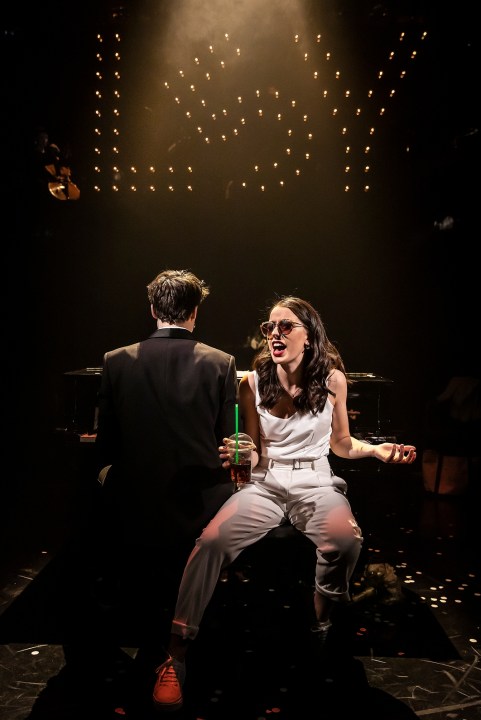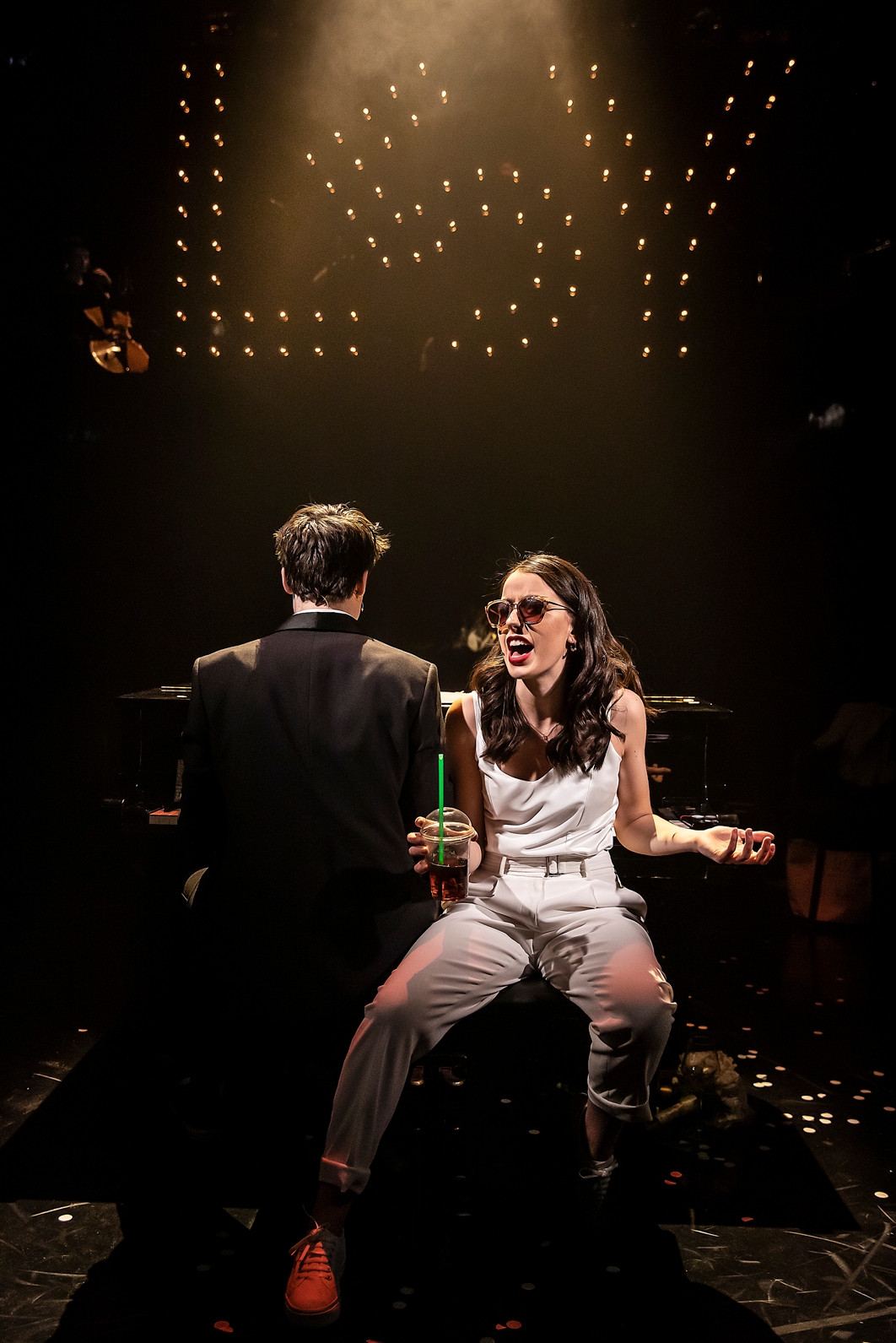Southwark Playhouse has revived an American show, The Last Five Years, whose run was cancelled in March. In advance, I received an email outlining the theatre’s new rules, which appeared to exceed the minimum legal requirements. At the venue, I found that the main entrance had become the exit while the side door had become the main entrance. What for? Perhaps an unsubtle reminder that ‘everything’s changed now, pal, so get used to it’. The queue on the pavement moved at a turtle’s pace because the usher gave each playgoer a homily about the new regime before allowing them to pass through Checkpoint Charlie.
Inside it was like an army hospital. Sentries in the corridors regulated our access to the loos. The auditorium had been denuded of half its chairs, and each seat was now separated from its neighbour by a wobbly sheet of Perspex. The strip joints in Soho used to have similar partitions to give voyeurs privacy during girly shows. I sat in my plastic hutch, wheezing through the same rancid muzzle I’ve been using for months, and I glanced around at the masked spectators on either side of me. We looked like a set of terminal cases in a lung unit.
Covid has simply boosted the latent hostility that theatre people have always felt towards their audience
The show began. It’s a sung-through musical about New Yorkers, Jamie and Cathy, who meet and fall in love. She acts. He writes. He succeeds. She doesn’t. They marry. Things go awry when he lands a book deal but she refuses to attend the launch party. The story focuses entirely on the couple, who seem to lack any friends or family and who have no ambitions beyond sustaining their affair and chasing success in their chosen fields. There was no suspense, no jeopardy, no threat to their happiness. Or so I thought. In fact these elements were embedded in the show’s format. Jamie is telling the story from the beginning while Cathy is starting at the end and rewinding. (I didn’t release this at the time and I stumbled on the truth while researching the show online. Perhaps that’s my fault rather than the writer’s.)
Oli Higginson’s Jamie is a blandly handsome hunk who sings decently enough. Molly Lynch, a svelte brunette, plays Cathy with excellent comic touches. She has the better role and makes a lot more of it. But I was incapable of engaging with their story because I couldn’t suppress the awareness that I was crouching in a see-through kiosk, trussed at the mouth. After the curtain call, the staff imposed a further restriction by forcing us to wait while they liberated each row in turn. I ignored this absurdity. An usher who blocks your exit from a theatre commits the crime of false imprisonment. So what’s causing all this jackboot zealotry? The truth is that theatre people have always enjoyed harrying and bullying playgoers a little. They can’t help it. To them, the spectators are an unreliable and unwanted gang of philistines who are likely to impede the company’s ability to express itself. To put it bluntly, they regard the audience as a conspiracy against art. Alas, Covid has boosted this latent hostility. It’s not the playgoers who should be restricted, it’s the presumptuous theatre bosses.
That Was All is a one-woman show told in the second person singular, like Jay McInerney’s 1980s classic, Bright Lights, Big City. The narrator is a female graduate seeking romance and literary success in London. ‘There you are pulling pints at three in the morning even though you’ve got a masters in literature from Goldsmiths.’ The script, by Francis Grin, takes us on a guided tour of London’s pseuds, chancers and weirdos. We meet Paul who lives with 13 flatmates in a warehouse ‘decorated with Winnie the Pooh-themed art’. He wears a Himalayan prayer-bead necklace and calls himself a ‘certified advanced breathing practitioner’. We’re introduced to El Divino, a Mexican prophet, whose banalities are delivered in a sonorous baritone. ‘You do not need anything to live,’ he sings, punching his breastbone. ‘Everything you need is in here.’
The narrator meets handsome Nick who could be boyfriend material. But their first date is ruined by the arrival of the poor girl’s dad. He’s a Cockney geezer with an amateur interest in philosophy who wants to discuss abstractions like the filial bonds that unite families. ‘So fellas,’ he says to his daughter and Nick, ‘how do you define true love? I’m trying to have some real talk here.’
This is a wonderful piece of theatre which documents modern London in a stream of warm, funny, stylish and celebratory vignettes. And there’s a fantastic performance — or set of performances — from Jennie Eggleton who has a seemingly endless gift of mimicry. A lot of theatre now and in the future will be fuelled by anger and a desire for vengeance. What a treat to see art on stage and not accusation.








Comments